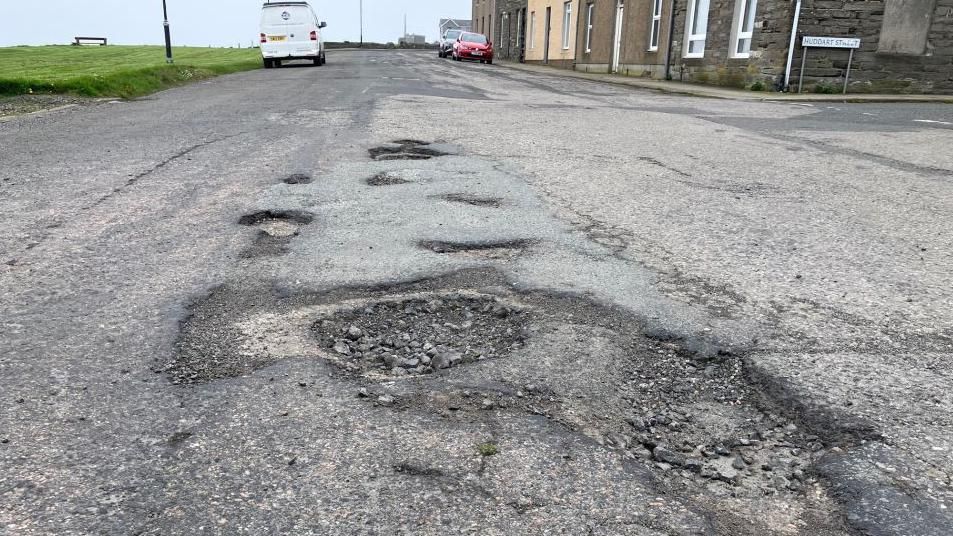New £2bn plan to fix Highland potholes and upgrade schools

Potholes in Wick
- Published
Highland Council has proposed investing £2bn over the next 20 years to upgrade its potholed roads and build new schools.
The local authority said it would pay for the plan by borrowing money and using 2% of the money it collects through council tax.
Highland has the longest road network in the UK with more than 4,200 miles (6,759km) of roads, in excess of 1,000 miles (1,609km) of footpaths and more than 2,200 bridges and culverts.
Almost 70 of its more than 200 schools have been rated to be in a poor condition and 74 rated as being of poor suitability.
Councillors will be asked to approve the proposed investment at a meeting on 9 May.
Council leader Raymond Bremner said if it was given the go-ahead, work would begin immediately on the project.
He told BBC Naidheachdan: "This is an ambitious plan.
"It's something we've been looking to do for some time because of the challenges we have with our roads and our school estate."
The local authority has been criticised in recent months for the state of roads in Skye and Caithness, and the lack of progress on new school campuses to replace ageing buildings.
It has bought land in Dingwall for a new school for pupils with additional support needs, but currently has no funding to construct it.
Last year, the council had to cut the amount of money available to put towards replacing Inverness' 46-year-old Charleston Academy from £14.5m to £1.5m due to financial challenges.
Budget cuts have hit new school plans including replacing Charleston Academy
Highland Council said projects that would benefit from its plan include:
New Alness primary - £40-50m
New primary and special school in Dingwall - £40-50m
Charleston Academy and Kinmylies Primary campus - £80-100m
Refurbishment of part of Fortrose Academy - £20-25m
Completion of improvements to Inverness High - £20-25m
Highland's council tax would continue to be set on an annual basis.
The local authority said its investment plan established the principle of ring-fencing an amount from budgeted council tax income every year to support borrowing, and was based on an expectation council tax would increase year-on-year.
Related Topics
- Published23 April
- Published4 April
- Published28 March
- Published20 November 2023